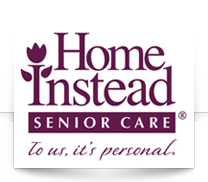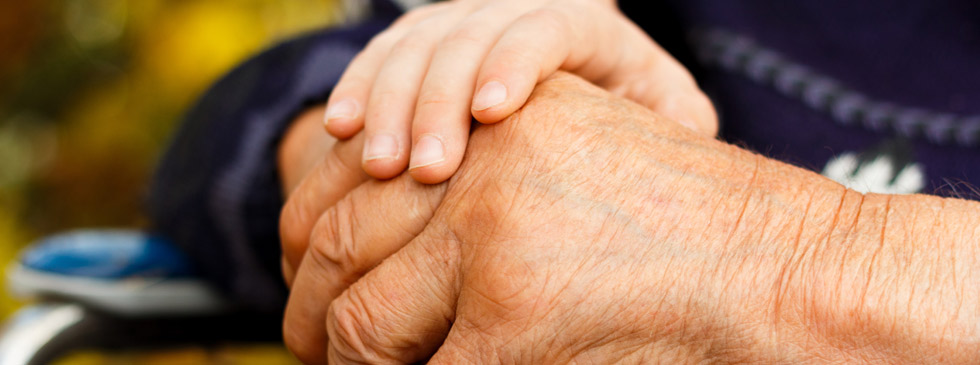The 40-70 Rule: Conversation Starters
To help adult children of older adults know what to say, following are various scenarios of common senior topics. Each is backed by Home Instead Senior Care research conducted in the U.S. Responses were developed in cooperation with Jake Harwood, Ph.D., communication professor and author from the University of Arizona.
When Health Changes Lifestyles
Your 70-year-old widowed mother has just been diagnosed with macular degeneration, a disease that causes deterioration of eyesight. How do you begin a conversation with her about the possible ramifications of this disease on her life?
Many seniors in this situation might begin the conversation with family themselves. If not, then it would be good to think about her personal circumstances and important areas to address. For example, if your mother lives in a remote area, transportation is probably the most immediate issue. Approach the conversation with the goal of trying to resolve this one issue, rather than multiple issues.
Timing is the key. There are rarely urgent deadlines that have to be met immediately – give yourself and your parent time to think about issues. Your mom would likely be receptive to a conversation that begins: “Let’s figure out a plan for how you can get around town if you no longer feel safe driving.”
Research: Nearly one-third of Baby Boomers said their biggest communication obstacle with aging parents is continuation of the parent-child roles that emerged in childhood, making discussion of sensitive issues even more difficult.
Did Dad Hit a Light Pole?
A neighbor of your 83-year-old dad has called to tell you he saw your father back his car into a light pole. What do you say?
If the damage is visible, you could ask, “Hey Dad, what happened to the car?” Or you could bring up the phone call from his neighbor. “Fred from next door called and said he saw you run your car into the light pole.” This is an example of a situation that calls for more general observation. Take the opportunity to drive with your parent. Even a short drive would help you gauge your dad’s skills and deficits.
For instance, an older adult who consciously reduces driving at night because of vision issues or who drives a little slower to account for reaction time is probably safe. On the other hand, an 83-year-old who insists on driving icy highways at night while doing 75 mph is probably in need of immediate intervention. Then gear your comments accordingly. If you’re concerned that your dad is unsafe on the roads, make this safety and that of others your focus. “Dad, I’m worried that you’re no longer safe on the roads and that others could be at risk at well.”
You’re Going to Wear That?
You’re planning a birthday party for your 85-year-old mother and she insists on wearing her favorite blue dress. Because her eyesight is poor, she can’t see that the dress is stained and worn. What do you do?
It’s important to determine whether this really is an issue – that the stains are worth addressing with your mother. If so, be direct: “Mom, did you know that your party dress is stained?” Then offer to have it cleaned, or better yet, suggest a shopping trip: “Mom, this is a really special occasion. I’d love to buy you a new outfit. Let’s go shopping.”
If she still wants to wear the dress, then a family council or a fight with your mom is simply not worth it. You may need to figure out a way to overcome any embarrassment that you feel at your mom’s appearance, but ultimately what she wears should be her choice. The embarrassment that you feel is your problem, not hers. Chances are, though, if she knows you are apprehensive about the dress and willing to help her find a new one, she will agree.

